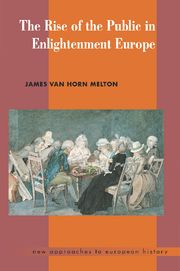Book contents
- Frontmatter
- Contents
- List of tables
- Acknowledgments
- Introduction: What is the public sphere?
- Part I Politics and the rise of “public opinion”: the cases of England and France
- Part II Readers, writers, and spectators
- 3 Reading publics: transformations of the literary public sphere
- 4 Writing publics: eighteenth-century authorship
- 5 From courts to consumers: theater publics
- Part III Being sociable
- Conclusion
- Index
4 - Writing publics: eighteenth-century authorship
Published online by Cambridge University Press: 05 June 2012
- Frontmatter
- Contents
- List of tables
- Acknowledgments
- Introduction: What is the public sphere?
- Part I Politics and the rise of “public opinion”: the cases of England and France
- Part II Readers, writers, and spectators
- 3 Reading publics: transformations of the literary public sphere
- 4 Writing publics: eighteenth-century authorship
- 5 From courts to consumers: theater publics
- Part III Being sociable
- Conclusion
- Index
Summary
Samuel Johnson declared that he lived in “The Age of Authors.” Dr. Johnson, who may well have read more authors than anyone else in the eighteenth century, was referring to his native Britain. Yet he might just as easily have been speaking of the Continent, for there, as in Britain, the dramatic increase in the production and consumption of the printed word gave a new importance to authors. For one thing, there were considerably more of them. In 1761 a German observer remarked of his native land that “we live generally in an age when … almost everyone is afflicted by a passion to be an author. From the throne down to the shepherd's hut, anyone who knows how to hold a pen writes books.” Hyperbole to be sure, but more dispassionate commentators also noted the proliferation of authors. In the late eighteenth century the lexicographer Johann Georg Meusel estimated the number of German authors to have totaled between 2,000–3,000 during the 1760s, rising to 4,300 in 1776, 5,200 in 1784, and 7,000 in 1791. French lexicons attested to a similar increase in France. La France litteraire, a guide to French writers and their books published during the second half of the eighteenth century, listed 1,187 authors in 1757, 2,367 in 1769, and 2,819 in 1784. Citing these statistics, Robert Darnton concludes that by 1789 France had at least 3,000 authors, well over twice the number for 1750.
- Type
- Chapter
- Information
- The Rise of the Public in Enlightenment Europe , pp. 123 - 159Publisher: Cambridge University PressPrint publication year: 2001

